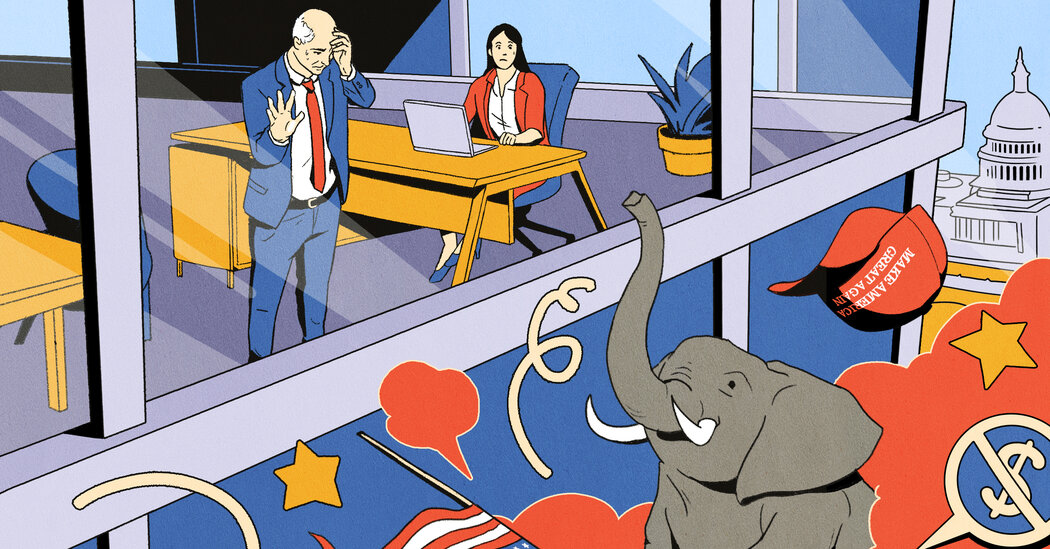Delta Air Lines, based in Atlanta, could also be called to testify. Why? Because Delta CEO Ed Bastian described Georgia’s 2021 voting rights law — which critics say would make it harder for minorities to vote — as “unacceptable” and “based on a lie.”
Nineteen Republican attorneys general are examining the six largest U.S. banks for their climate change policies — which Republicans will no doubt pick up on. “Financial companies pushing for less fossil fuel use will come under pressure,” said Mr Clifton.
But the company most likely under investigation, Republican strategists say, is BlackRock, the giant wealth manager, and its CEO, Larry Fink. This week, BlackRock released more details about its efforts to give investors direct access to vote for its stock, in part in response to critics who believe the company has too much influence. In his annual letters to CEOs, Mr. Fink has strongly stated that climate goals and ESG more generally are important both for society and for business results. Shareholders, he wrote in his most recent letter, “need to know where we stand on the societal issues inherent in the long-term success of our companies.”
One person who has argued the opposite — that companies need to make money and give up ESG and politics — is investor Vivek Ramaswamy, whose book “Woke Inc.: Inside Corporate America’s Social Justice Scam” has been highly influential in Republican circles. Last spring, for example, Mr. Ramaswamy spoke at the Florida House of Republicans retreat. “What I had to say was very well received,” he told me.
Then there are areas where Republicans are likely to help companies because their positions are so in sync with company goals. Mr. Clifton told me that Republicans will push hard for more energy infrastructure – such as pipelines from Canada – which, of course, is something that energy companies want.
And Republicans and big business both want fewer rules. With Republicans at the helm, congressional committees will question the actions of the heads of Democratic bureaus. Has the National Labor Relations Board become too pro-union, especially in its dealings with Amazon? Where is the SEC’s authority to issue a proposed climate-related disclosure rule? Is the CFPB pursuing a “radical and highly politicized agenda that is not bound by legal boundaries,” as a group of Republican senators described the agency in a forcefully worded letter to its director, Rohit Chopra, last September? Is the FTC chairman, Lina Kahn, moving the desk too far to the left?
As for the Environmental Protection Agency, long a Republican target, trade publication E&E News predicts “several hour-long hearings,” “letters demanding documents from every corner of the bureau,” and “even text-message subpoenas.”

